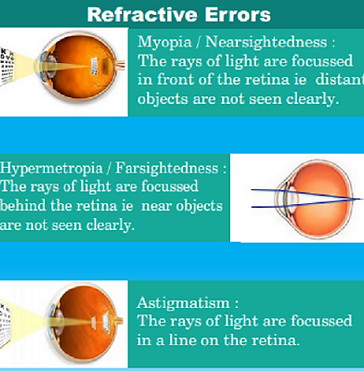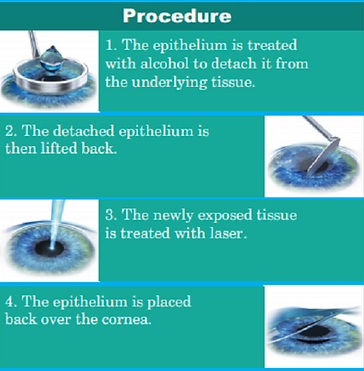LASEK
What is LASEK ?
LASEK, or more appropriately, in our case, Advanced Surface Ablation (ASA), is a type of refractive surgery for the correction of myopia (short-sightedness), hyperopia (long-sightedness), and astigmatism. This surgery is performed by an ophthalmologist who uses laser to reshape the eye's cornea in order to improve vision. For most people, it provides a long-lasting alternative to eyeglasses or contact lenses.
Lasek (Laser Assisted Insitu Keratomileusis) is one of the many procedures done for correction of refractive errors. Over the years, several new procedures have evolved and techniques introduced. For the layman, the term LASIK has today become synonymous with any laser-assisted correction of refractive errors.
In Keshava Netralaya, the NIDEK EC-5000 CX-111, which is the most reliable excimer laser for correction of refractive errors, is used. The procedure is being done since 3 years and has given accurate results.
These procedures have been intensively researched for their effects on the cornea. As of now, most of the surgeons world over feel that the procedure of advanced surface ablation (ASA) of the cornea to correct refractive errors is the safest with the least adverse effect on the strength of the cornea.

Working hours
Monday to Saturday
9 am to 7 pm
Sundays holiday
Contact us:
08172-266321




